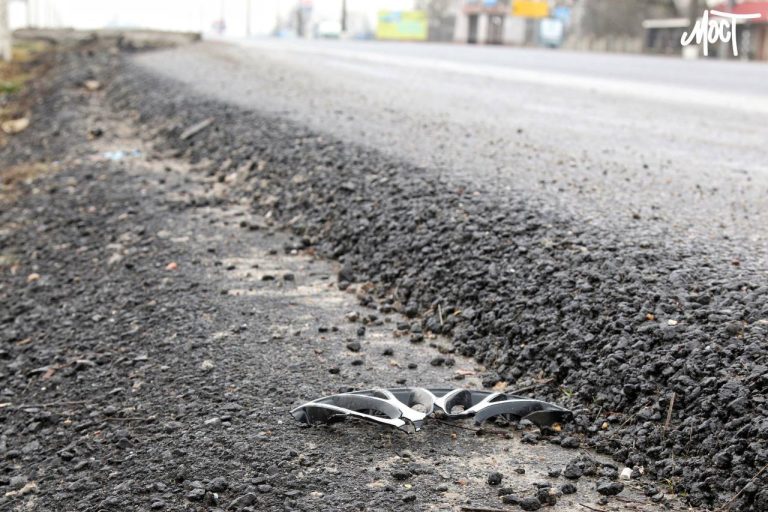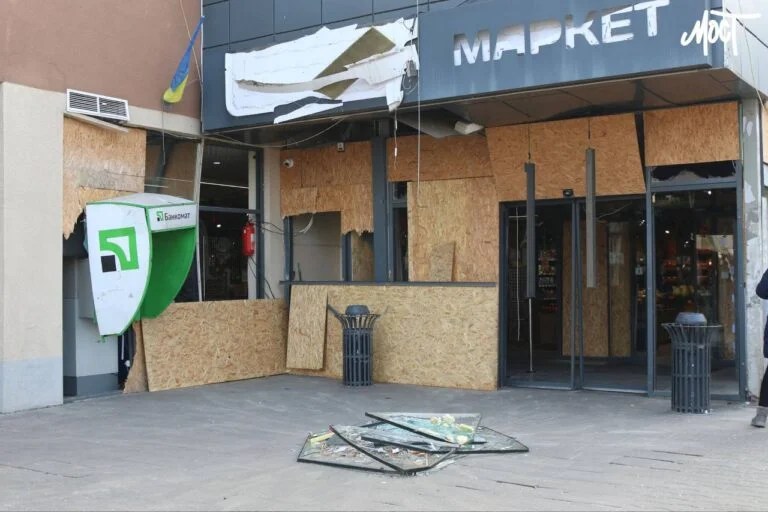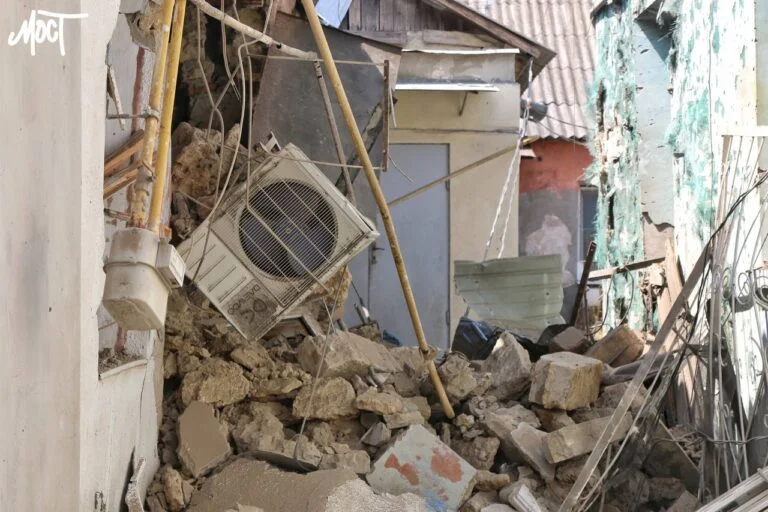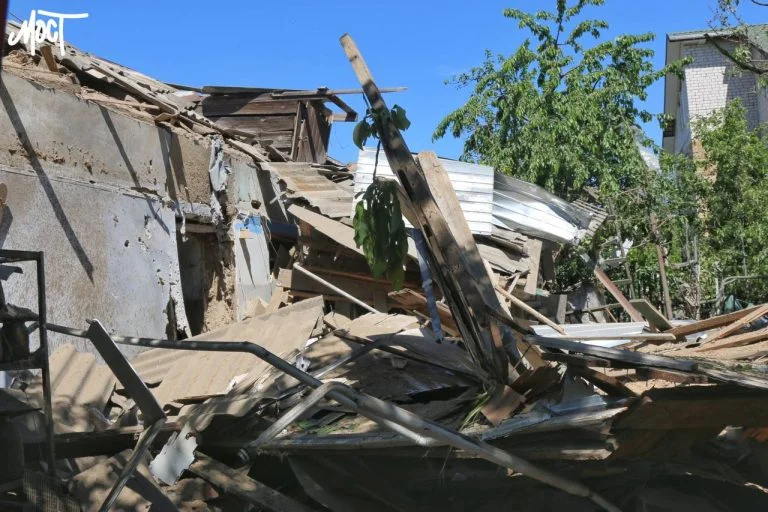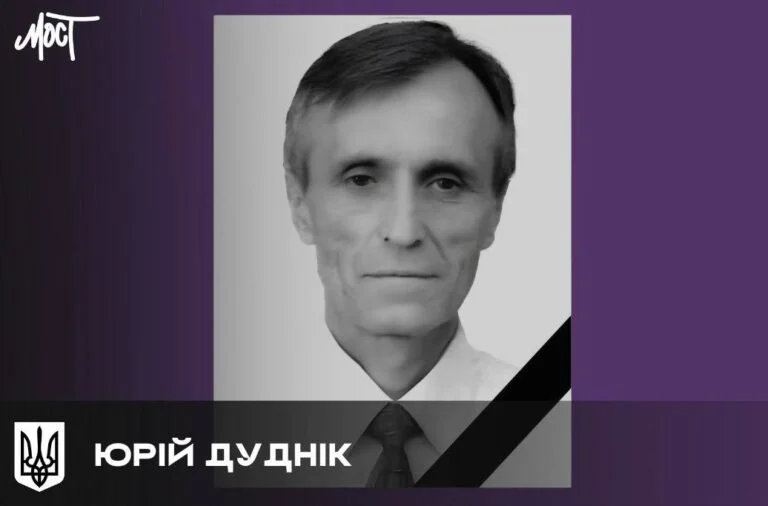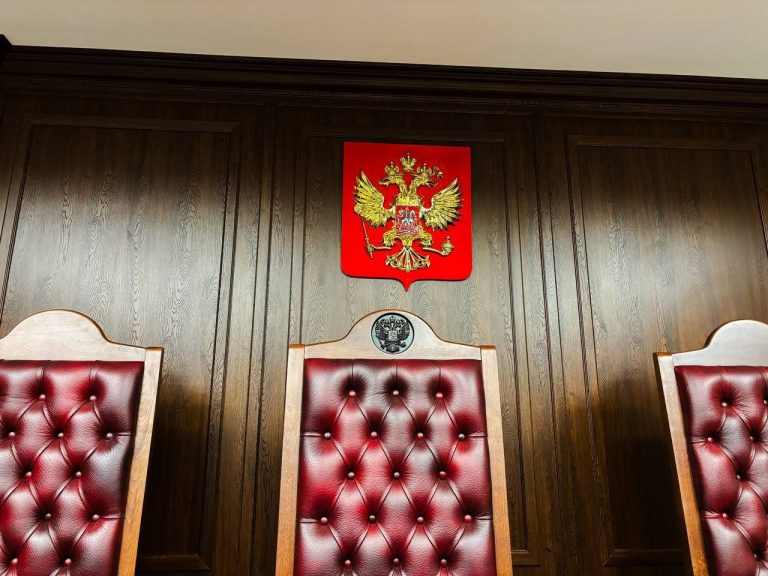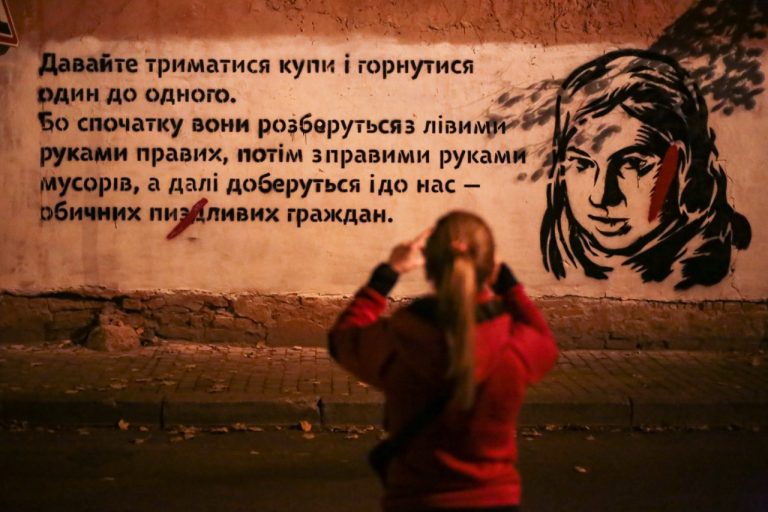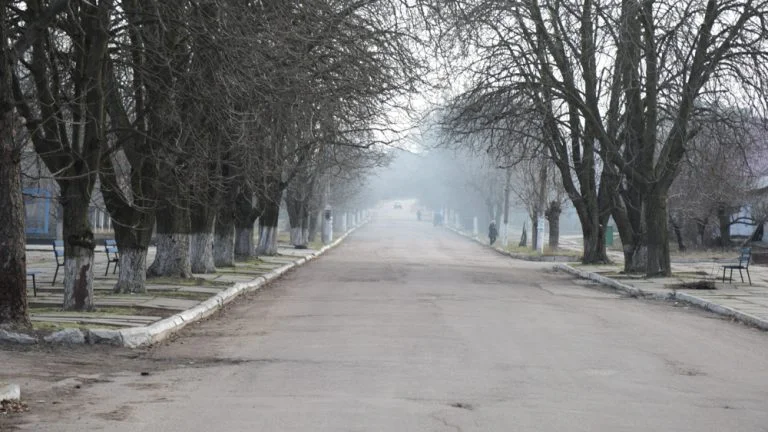Після атаки дрона РФ спалахнуло авто на Бериславському шосе
Після атаки російського дрона спалахнуло цивільне авто на Бериславському шосе.
Про це повідомляють очевидці.
Машина вигоріла вщент. Наявна антидронова сітка не врятувала від удару.
Детальніше на відео:
Раніше ми писали, що протягом тижня, з 3 по 9 листопада, російські військові здійснили 497 обстрілів та завдали три авіаудари по Херсонській області.
Російські удари по Херсонщині: протягом доби поранено п’ять мирних жителів, зруйновано житло та інфраструктуру
Протягом доби 18 жовтня унаслідок російської агресії на правобережжі Херсонщини постраждали п’ять людей.
Про це повідомив начальник Херсонської ОВА Олександр Прокудін в Telegram.
Під російськими ударами Херсон, Білозерка, Станіслав, Раківка, Берислав, Широка Балка, Олександрівка, Новорайськ, Чарівне, Томина Балка, Новодмитрівка, Антонівка, Молодіжне, Микільське, Понятівка, Кізомис, Софіївка, Садове, Зорівка, Придніпровське, Берегове, Комишани Наддніпрянське, Правдине, Дар’ївка, Осокорівка, Бургунка, Веселе, Дудчани, Новотягинка, Одрадокам’янка, Токарівка, Томарине
Російські військові били по критичній та соціальній інфраструктурі, житлових кварталах населених пунктів області, зокрема пошкодили 2 багатоквартирних та 15 приватних будинків. Також окупанти понівечили адмінбудівлю, вежу мобільного звʼязку у Бериславському районі, гараж та приватні автомобілі, йдеться в повідомленні.
У дроні, яким росіяни атакували Херсон, виявили корейську складову
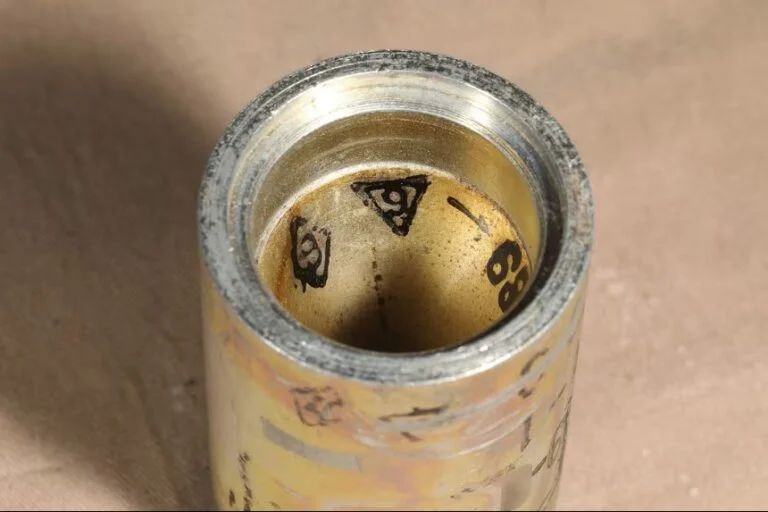
У БПЛА, який атакував Херсон у вересні цього року, виявили складові частини з корейськими ієрогліфами. Серед наявних ієрогліфів позначення календаря чучхе, що використовується у Північній Кореї.
Про це повідомила британська організація Conflict Armament Research (CAR).
Згідно з маркуванням, суббоєприпас виготовили у 1989 році за чучхою, тобто у 2000 році за григоріанським календарем, повідомляє організація CAR.
За висновками організації, боєприпас спочатку був частиною реактивної артилерійської системи, а пізніше модифікували для використання на FPV-дроні.
Зазначається, що корейську складову до боєприпасу окупанти використовують при виготовленні кустарних боєприпасів для дронів-камікадзе.
Їх закріплюють за допомогою дерев’яної палиці, дроту та клейкої стрічки, йдеться у матеріалі.
Також у CAR заявили, що ця знахідка встановлює ще один прямий матеріальний зв’язок між північнокорейською оборонною промисловістю та війною в Україні.
Conflict Armament Research (CAR) – це британська дослідницька організація, яка відстежує поставки звичайної зброї, боєприпасів та пов’язаного військового обладнання в зони конфліктів. Вона спеціалізується на розслідуванні того, як озброєння потрапляє в руки терористів та повстанських груп, і співпрацює з урядами для вирішення цих питань.
Раніше МОСТ писав, що Tochnyi створив карту, яка фіксує понад 2800 випадків атак російських дронів на цивільних у Херсоні, а також від ударів безпілотників на Херсонщині та Донеччині у вересні цього року загалом загинуло 54 людини, ще 272 – поранено.
Військові РФ вдарили артилерією по будинку у Херсоні: з-під завалів дістали чоловіка
Російські військові ударили артилерією по Дніпровському району Херсона, внаслідок атаки постраждав 39-річний чоловік, його деблокували з-під завалів оселі.
Про це повідомила Херсонська МВА.
У чоловіка вибухова та черепно-мозкова травми, контузія, садна голови і травма грудної клітки.
Його шпиталізували у тяжкому стані.
Нагадаємо, минулої доби внаслідок російських обстрілів Херсонщини постраждали четверо людей, серед них дитина.
З-під завалів дістали тіло жінки, яка загинула через артобстріл Херсона
Російські військові обстріляли з артилерії приватні будинки у Дніпровському районі Херсона. Через удар загинула жінка.
Про це повідомив начальник Херсонської ОВА Олександр Прокудін.
“З-під завалів однієї зі знищених осель рятувальники деблокували тіло загиблої жінки. Її особу нині встановлюють”, – зазначив він.
До цього ми писали, що удару російського дрону загинув депутат Херсонської облради та фермер Олександр Гордієнко.
Транспорт на Херсонщині: скільки маршрутів наразі працює
Наразі на Херсонщині функціонує 12 приміських та міжміських внутрішньообласних маршрутів.
Про це йдеться у розпорядженні начальника Херсонської ОВА Олександра Прокудіна “Про прогноз обласного бюджету на 2026-2028 роки”.
Також курсує 21 соціальний маршрут, 26 міжобласних та міжнародних маршрутів, 16 міських маршрутів та 5 тролейбусних маршрутів.
Також після деокупації відновлено роботу 3 міжобласних поїздів сполученням Херсон – Львів, Херсон – Київ, Херсон – Краматорськ та приміських потягів Миколаїв – Біла Криниця і Високопілля – Апостолове.
“Основний фактор, що стримує збільшення кількості маршрутів та рейсів, – постійні ворожі обстріли та атаки громадського транспорту з дронів”, – ідеться у документі.
Раніше ми писали, що попри збільшення активності російських дронів на трасі М-14, рейсові перевезення за маршрутом “Херсон – Миколаїв” та у зворотному напрямку скасовувати не будуть.
Пішов із життя колишній головний санлікар Білозерського району Юрій Дуднік
Пішов з життя колишній головний державний санітарний лікар Білозерського району Юрій Дуднік.
Про це повідомили на сторінці обласного центру контролю та профілактики хвороб.
Чоловік 44 роки пропрацював у системі санітарно-епідеміологічної служби Херсонщини.
“Пам’ять про Юрія Федоровича назавжди залишиться у серцях колег та всіх, хто мав честь працювати поруч із ним”, – написали у ХОЦПКХ.
Раніше ми писали, що у тимчасово окупованих Олешках загинула херсонська науковиця та викладачка Валентина Тихоша.
Окупанти судитимуть жителя Херсонщини за “шахрайство” з субсидіями на пшеницю
Окупанти судитимуть жителя Дем’янівки на Херсонщині, який начебто підробив документи для отримання субсидії на вирощування озимої пшениці.
Про це повідомили проросійські медіа.
У такий спосіб, ідеться у дописі, він заволодів близько 450 тисячами рублів.
Окупанти інкримінують йому шахрайство за ч. 3 ст. 159 КК РФ.
До цього ми писали, що на лівобережжі Херсонщини судитимуть місцевого підприємця, який за фіктивними документами отримав субсидію у розмірі понад 11 млн рублів із місцевого бюджету на вирощування картоплі та овочів.
Why are the trials in the Katya Handziuk case still ongoing?
Why are the trials in Katya Handziuk’s case still going on?
The verdict against the organizers of the fatal attack on Katya Handziuk was announced in June 2023. As expected, the accused filed an appeal. And now the Kyiv court has been holding hearings for almost a year. Read our article to find out what is happening in this important case and when the perpetrators of Kateryna’s death will finally be punished. The case is still being heard in the Kyiv Court of Appeal. What exactly is happening in the case that is important for our team and when will it finally end?
After the verdict was announced, according to which the mastermind and organizer of the attack should spend 10 years in prison, Vladislav Manger and Oleksiy Levin exercised their right to appeal. On February 5, 2024, the Kyiv Court of Appeal held the first court hearing, where the defense’s appeal was supposed to begin. However, it is now early 2025, and the case has not yet been considered even halfway.
The reason for such a lengthy trial is that Manger and Levin’s lawyers have resorted to the practice of delaying the trial, throwing numerous additions and amendments to their six appeals at the court of appeal, requests to interrogate a large number of questionable witnesses and examine the materials of ordered videos under the guise of journalistic investigations that try to whitewash the reputations of the defendants in the case. By the way, while the judges were considering all these complaints and motions, the author of one of the “films” that was supposed to sow distrust in the court towards the prosecution, Serhiy Shevchuk, was himself taken to a pre-trial detention center and will be tried for treason.
All of this together takes up the time allotted by the court for consideration of the case on the merits. If you add to this the state of war and numerous air alerts, which also change the work schedule of the entire justice system, the case seems endless.
A bit of chronology:
- July 2020 – June 2023 – the trial in the court of first instance (during which the defense announced the interrogation of about 110 witnesses);
- June 26, 2023 – the announcement of the guilty verdict against the organizers, Vladislav Manger and Oleksiy Levin;
- August-September 2023 – decision on the opening of appeal proceedings on all filed appeals;
- November 14, 2023 – the first scheduled hearing in the Court of Appeal, at which one of the panel of judges recused himself from the case because he had already participated in the investigation;
- February 5, 2024 – actually the first hearing in the appeal, where they managed to consider the challenge of Manger’s lawyers to the presiding judge on far-fetched grounds, a request to release the accused outside the glass booth in the courtroom, 1 motion for evidence and an alleged supplement to the appeal of Manger’s defense.
The prosecution classified the attack on Kateryna under Part 2 of Article 122 of the Criminal Code of Ukraine (intentional grievous bodily harm committed in a manner that is particularly torturous, or committed by a group of persons, or with the intent to intimidate the victim or other persons, or for reasons of racial, national or religious intolerance, or committed to order, or that caused the victim‘s death, and is defined as a serious crime).
This means that the state has 10 years from the date of the attack to find and punish the perpetrators. This includes both the time for investigation and the time for trial in all court instances (first instance, appeal, Supreme Court). 10 years, of which more than five have already passed.
As of now, the Court of Appeal has heard the defendants, their defense lawyers, the prosecutor, and representatives of the victims – Kateryna’s family and relatives.
The next step in the case will be to consider the request of the defense of Manger and Levin to interrogate witnesses and re-examine the evidence.
At the same time, the defense is purposefully asking to interrogate at the appeal stage those witnesses who were recanted in the court of first instance, or those who have already been interrogated, or those who are in the territory not controlled by Ukraine, whose summons is even technically impossible, since Ukrpost does not send letters to the temporarily occupied territories.
There is no doubt that under the guise of a full and comprehensive review of the case, the defense is trying to delay or even “talk” the case in court, thereby leveling the guilty verdict of the first instance court, which will open the way for the perpetrators to avoid punishment.
The defense is raising the issue of re-examining the evidence in the case by the court of appeal. At the same time, all the evidence mentioned in the appeal has already been thoroughly examined by the trial during the proceedings. This removes the obligation of the appellate court to reconsider this evidence.
In the case, the Supreme Court emphasized an important principle: even the existence of a motion for re-examination of certain evidence does not require the appellate court to review the entirety of the evidence that has already been evaluated at the previous stage. Pursuant to Article 23(2) of the CPC, evidence may be considered relevant only if it has been directly examined by the court. However, if the court of first instance examined all the evidence in compliance with procedural rules and the court of appeal agreed with their assessment, re-examination on appeal becomes unnecessary.
In addition, the denial of a motion for re-examination of evidence, in the absence of reasonable grounds or doubts about its relevance, is not a violation of the criminal procedure law. Such a refusal also does not indicate incompleteness of consideration or grounds for reversal of the decision, if the arguments of the participant in the proceedings do not confirm the need for re-examination.
We would like to emphasize that in Ukraine, the Supreme Court’s opinions have the status of quasi-precedent and must be taken into account by lower courts when considering cases in court.
During the consideration of Handziuk’s case on appeal, the defense repeatedly changed its demands regarding the petition.
Currently, both defendants are asking the court to overturn the verdict and close the criminal proceedings on the grounds provided for in Article 284(1)(3) of the CPC of Ukraine (there is insufficient evidence to prove the person’s guilt in court and the possibilities of obtaining it have been exhausted).
We understand that the murder customers and their lawyers have a need to delay the case as long as possible. And in 2028, they will ask to close it due to the timing of the trial.
In our opinion, a clear and fair resolution of the case of the murder of public activist Kateryna Handziuk in a particularly brutal manner sets a precedent that emphasizes the inevitability of punishment for a crime. And this is not just about justice for Katya or her family.
While a fair trial is a manifestation of respect for the victim’s life, which was deprived of it by a group of local criminal and political elements, the victim’s relatives and friends deserve to be guaranteed justice by the state.
But we shouldn’t forget that this case has become a model, and fair punishment for the customers should save the lives and health of many generations of civic activists across the country.
The first punishment for the instigators of a political assassination in the history of independent Ukraine should discourage local criminal and political circles from killing and maiming those who do not keep silent.
Therefore, we will continue to fight for justice in the case of Katya Handziuk and will not stop until the perpetrators are punished.
Taniushka’s watermelons and a broken tractor: a report from the family watermelon farm in Bilohirka
“Serhiy is not here, he went to the melon field,” says Tetiana, a resident of Bilohirka, smiling.
In front of her and her husband’s yard, in the shade of a large walnut tree, huge watermelons are stacked, and scales stand nearby. While her husband is working on the field, Tetiana invites us to taste the watermelons.
“We came to Bilohirka specifically for the watermelons, and we planned this trip back in May 2023, but last year there was a bad harvest, and we tasted the bitter watermelons of Bilohirka in the fall. It’s easy to find Serhiy and Tetiana’s house, which was vandalized by the Russians, as it’s the first one on the street, and the Ukrainian flag flies above it.
Tetiana was the first villager we spoke to in the spring of 2023, during our first trip here. Since then, the village itself and the farm of the spouses have changed. With the help of volunteers, they have rebuilt a small kitchen and are gradually tidying up the yard. Only two of Serhiy’s tractors remain unchanged, standing as terrible monuments to the Russian-Ukrainian war. The farmer has been trying to repair them for two years without success, but it looks more like a ritual than an action that can bring results.
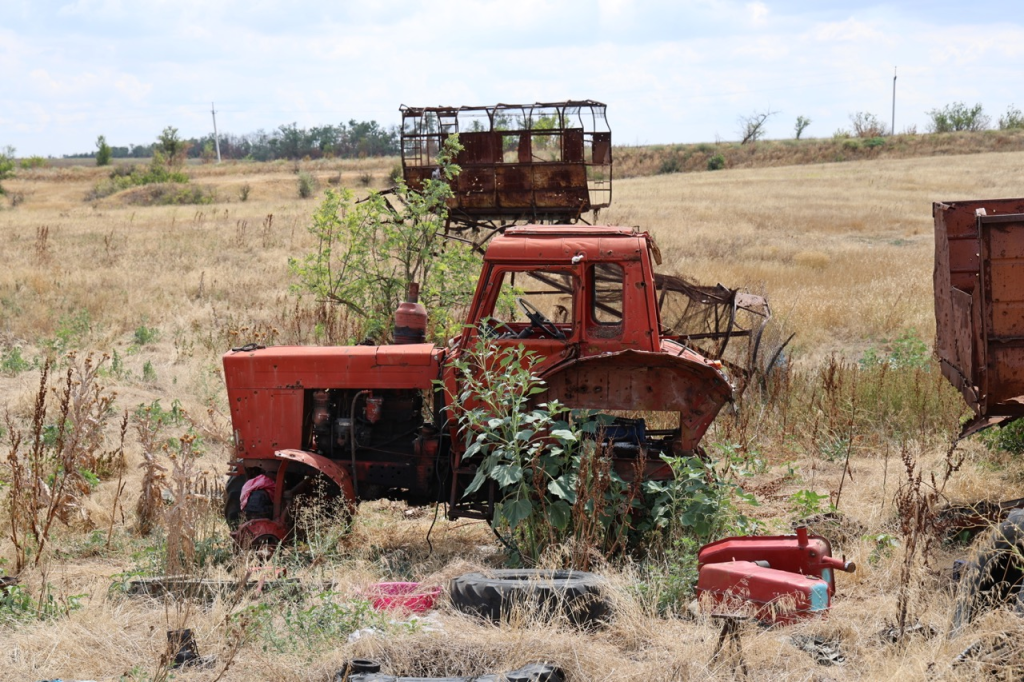
The old tractors are riddled with huge fragments of shells, mines, missiles, and maybe even bombs. All of this fell on the heads of the villagers and soldiers for six months. First, the Russians, who held it until early September 2022, and then the Ukrainians, who held back counterattacks and launched an offensive from here, towards Beryslav. As a result of the fighting, the village of Bilohirka was destroyed by 99%, but dozens of people have returned here over the past two years.
Destroyed tractors are a particular pain for Serhiy. In March, he complained to us that he had hired a tractor driver to plow a piece of field, but the tractor driver did it wrong. He paid the tractor driver, Serhiy whispered, out of his own stash.
While I’m looking at the mangled tractor, Tetiana is skillfully slicing watermelon in the Kherson way, in huge slices. Against the backdrop of the gate pierced by shrapnel, the woman smilingly hands us the watermelon. For us, who are used to the Tauride watermelon of the Kherson left bank, it is very surprising that a non-red watermelon can be so sweet.
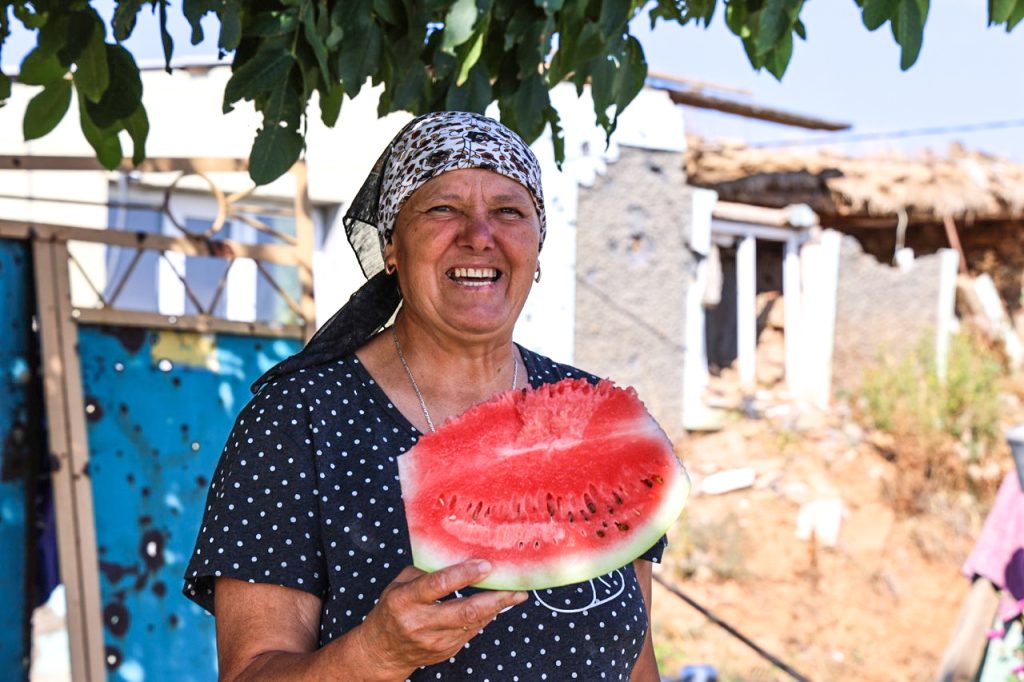
We are having a leisurely conversation about this, savoring the pink juicy flesh of a watermelon, when an old green Zhiguli turns into the village from the highway. The owner of the vintage Soviet car is a tall, smiling man in his late sixties. He is traditionally dressed in old classic suit pants that he may have worn to someone’s wedding, a cowboy shirt with the sleeves rolled up three-quarters of the way and an Abibas type baseball cap. This outfit makes Serhiy look like an American farmer, and his charisma makes him look like a congressman from Ohio.
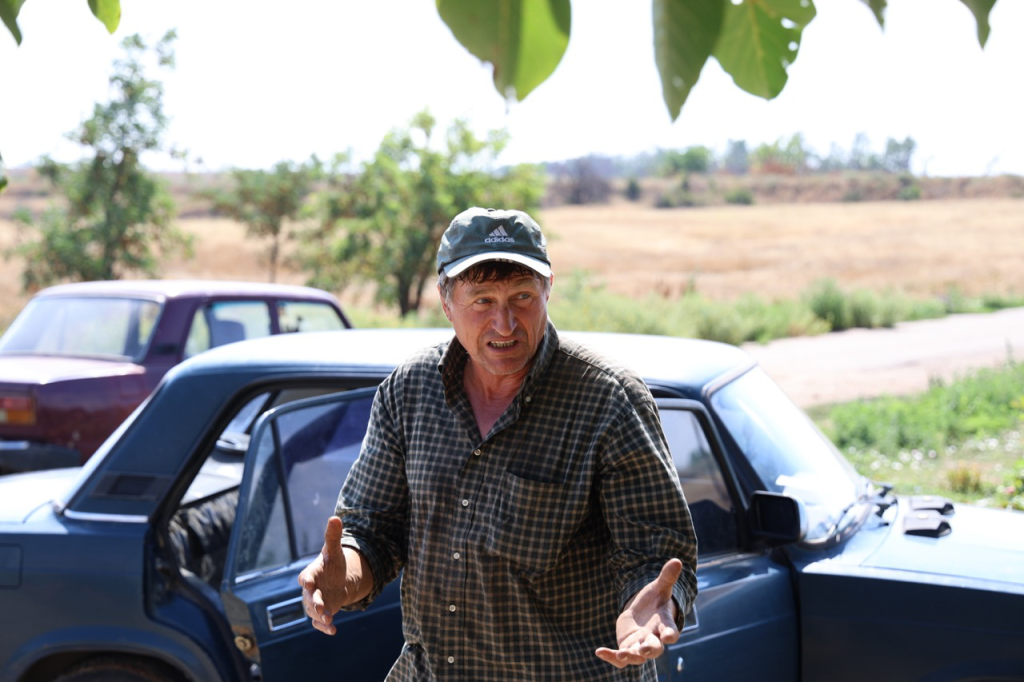
After businesslike reviewing the results of our watermelon tasting, he begins to carry the harvest in the Zhiguli under his arm.
“There is no more Bilohirka watermelon, no more. There are four of us here who grow watermelon, and I used to be the only one. So now I’m going to rename it for advertising – it will be Tanya’s watermelon. She was the one who weeded it. And Serhiy just watched. It’s my job to watch it grow,” he laughs.
Tetiana did not work alone, but with her two sisters. They weeded the huge melon field by themselves in a few days.
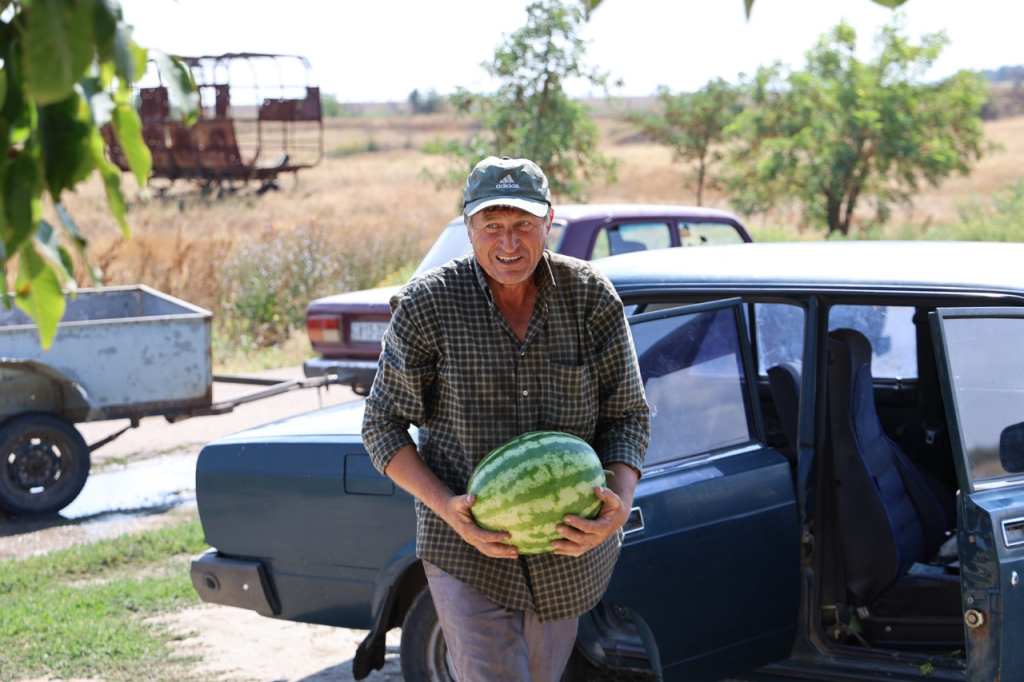
“I’m a generous person, but only a little greedy, so you know what I did? I went to the district, bought a pen and two notebooks. I wrote them letters of thanks for their good work. From the bottom of my heart! They were happy, and I was happy,” he laughs.
He adds that, in his opinion, watermelon is expensive this year – 12 hryvnias per kilogram.
“It is expensive, but diesel fuel is expensive. They can sell it cheaper if they want, but if you try to plow the melon field, diesel costs almost 50 hryvnias. Like it or not, we have to raise the price,” explains Serhiy, carrying watermelons.
He didn’t plant any melons for sale this year, but he has some in his garden, and there are some red watermelons. We go to check them out. The red watermelon from the garden behind the house is really not so sweet, and reminds us of the one in Odesa, a little bit sour. Serhiy laughs and shares the varieties of watermelons and their characteristics. He seems to know everything about watermelons and could easily write a book about it.
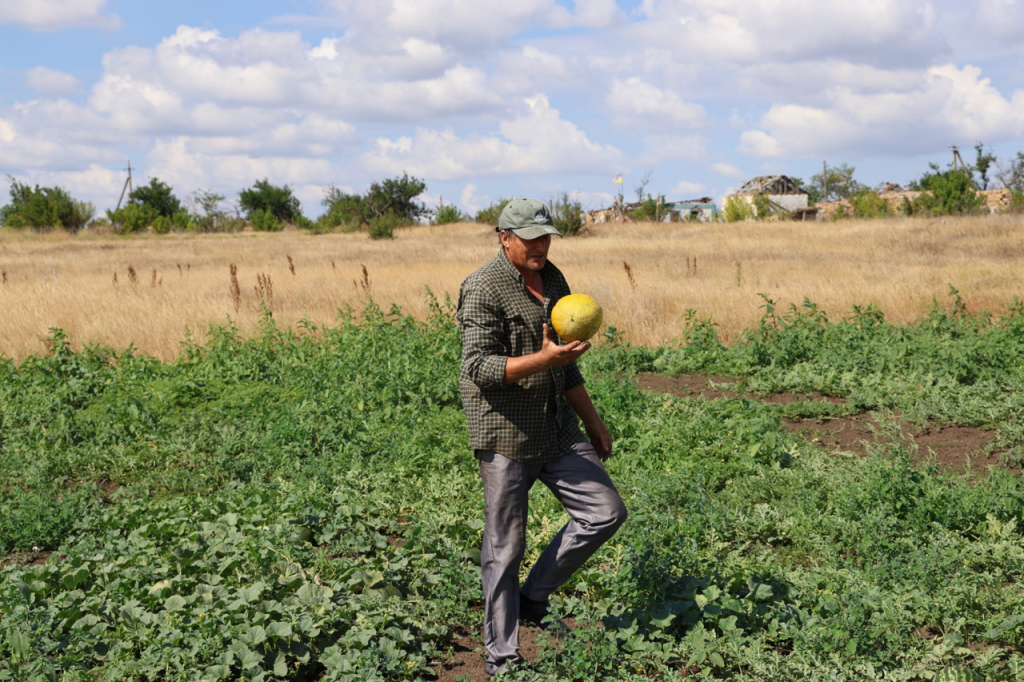
Watermelon sales are not very successful this year. Serhiy and Tetiana sell part of their harvest near their house, and part of it right on the road near the melon. But the road leading from Snihurivka to Davydiv Brid is very bad, so they try not to drive on it. In previous years, Serhiy used to sell his harvest “in the district,” that is, in Velyka Oleksandrivka, which was the district center until 2020. But even here, the tractor was his main assistant.
“In the evening, I would load the tractor trailer with watermelons and start selling in the district early in the morning. I used the tractor as an advertisement, because people see that the farmer brought it himself, so it will be cheaper and tastier. And they don’t buy much from cars, they think it’s a dealer. So I sold a trailer of watermelons until the evening. And now I don’t have a tractor, so there’s no advertising,” Serhiy says on his way to the field.
He planted it very late this year, in May. Before that, the field had not been inspected by sappers. Or rather, officially, it is still considered to be mined. Neither the military nor the State Emergency Service checked it. It was done by local self-taught deminers who clear their own and their neighbors’ fields on their own and at their own risk. It is not customary to talk much about their activities here, so we won’t either.

“I told Uncle Serhiy a long time ago that we should clear the field of mines and plant watermelons, but he was reluctant. But who else but people like him should be the first to sow? So we helped him a little bit,” explains one of the sappers, who had just stopped by the melon field to pick up a watermelon.
Serhiy smiles and looks for a ripe watermelon for him.
He refuses to clear the rest of the field, which runs from his melon almost to the village. There is nothing to cultivate it with, and he cannot afford to hire a tractor to cultivate it. He will have to pay a tax for the mined field every year, and while it is mined, taxes are not collected.
Despite the conditional clearing of mines, the field still contains dangerous equipment. In the middle of the field there is a sign “Attention! Mines”. Underneath the sign is an element of a cluster shell.

The shank of the Uragan is sticking out a little further.

“People say you’re scared? No, I’m not scared. You see a landmine, you walk around it and move on. We’re used to it,” he says, cracking young sunflower seeds.
This traditional delicacy of the Kherson steppes, which you have to pick out with your fingers from a huge sunflower that smells of oil and wind, brings you back to your childhood for a moment. Traditionally, single sunflowers are planted on melon fields, which grow and bob their huge heads above the watermelons. Serhiy smiles slyly when I tell him that I feel like I’m back in the now-occupied Stara Zburiivka.
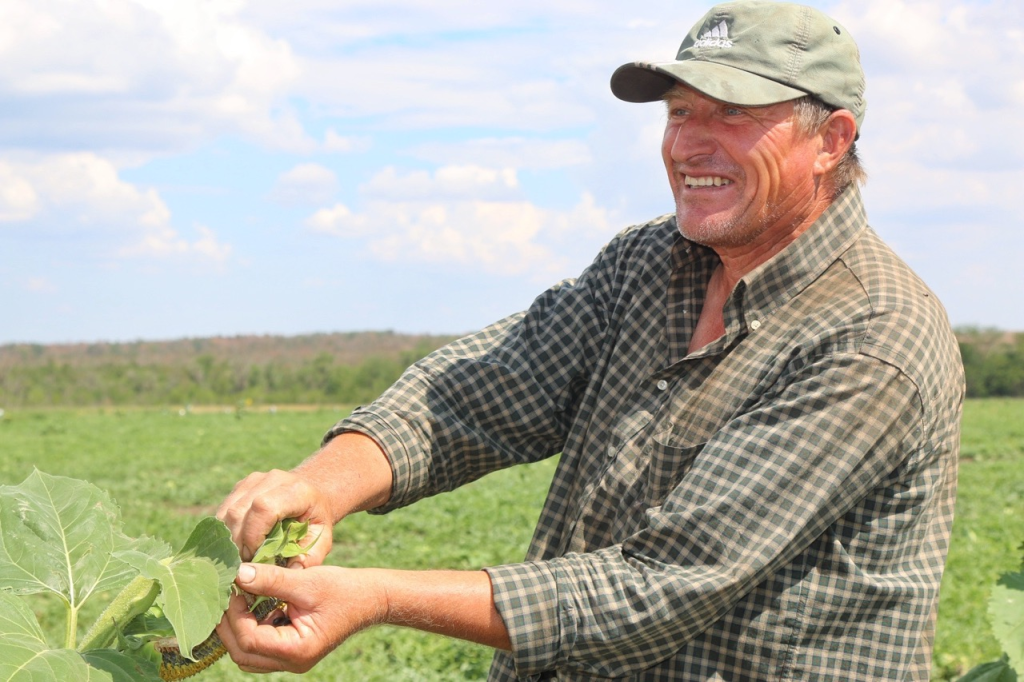
And he is openly jealous when I talk about the superiority of Holoprystan watermelon over the right-bank watermelon. Although he does not diplomatically enter into an existential dispute.
We only start arguing about IDP (internally displaced persons) payments, which have been canceled. In his opinion, it is necessary to pay money to people who have left their homes and often lost everything, while I believe that people need to socialize in new places, and payments corrupt many people. Serhiy shakes his head and says I’m wrong.
But he opposes the humanitarian aid that volunteers and charity workers have been pouring into the villages.
“They bring us pasta, and we are hardworking people, we don’t need that pasta. And they give us rations. I think we don’t need rations anymore. We are already on our land, so we have to work. And they bring me the rations “to keep you from barking, Seryozha”. I’m not a dog, I have hands,” he says sharply, but without anger.
Suddenly, he starts whistling – he has seen a stork landing on the other side of the field. Storks, hares, and roes are a disaster for the field, because they also like to eat sweet watermelons. And the ban on hunting has led to a rapid increase in the population of hares. According to the farmer, hares do a lot of damage, break a lot of watermelons, and not all of them are even eaten. A roe deer eats one and leaves.
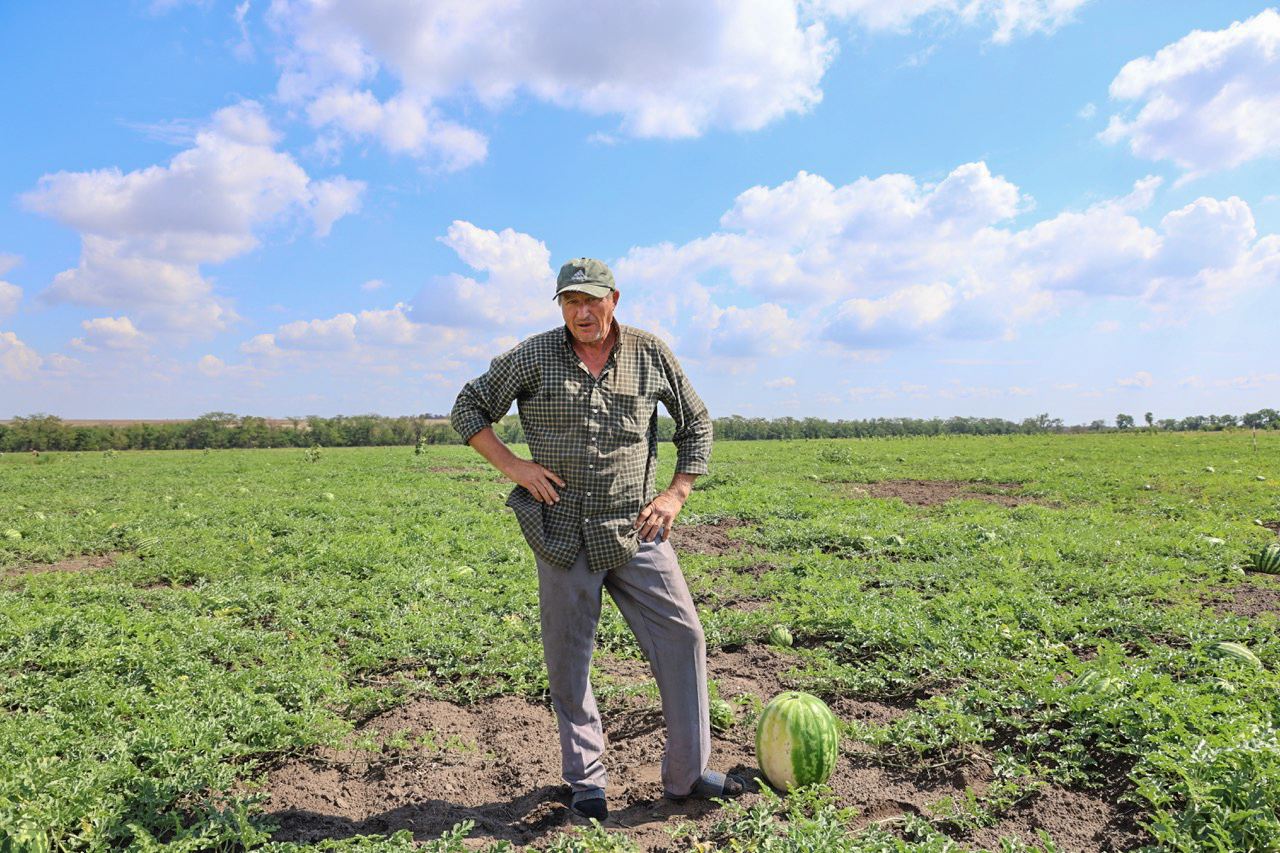
The whistle scares the stork, and it decides to fly to the river.
Serhiy begins to level the slats that mark the boundaries of different areas on the field. Instead of using a hammer, he uses an empty nose piece from a Russian rocket, as there is plenty of such stuff on the field. The fence slides easily into the wet sand. It is surprising that in the middle of the black earth right-bank steppe there is a plot of sand that the watermelon loves so much.
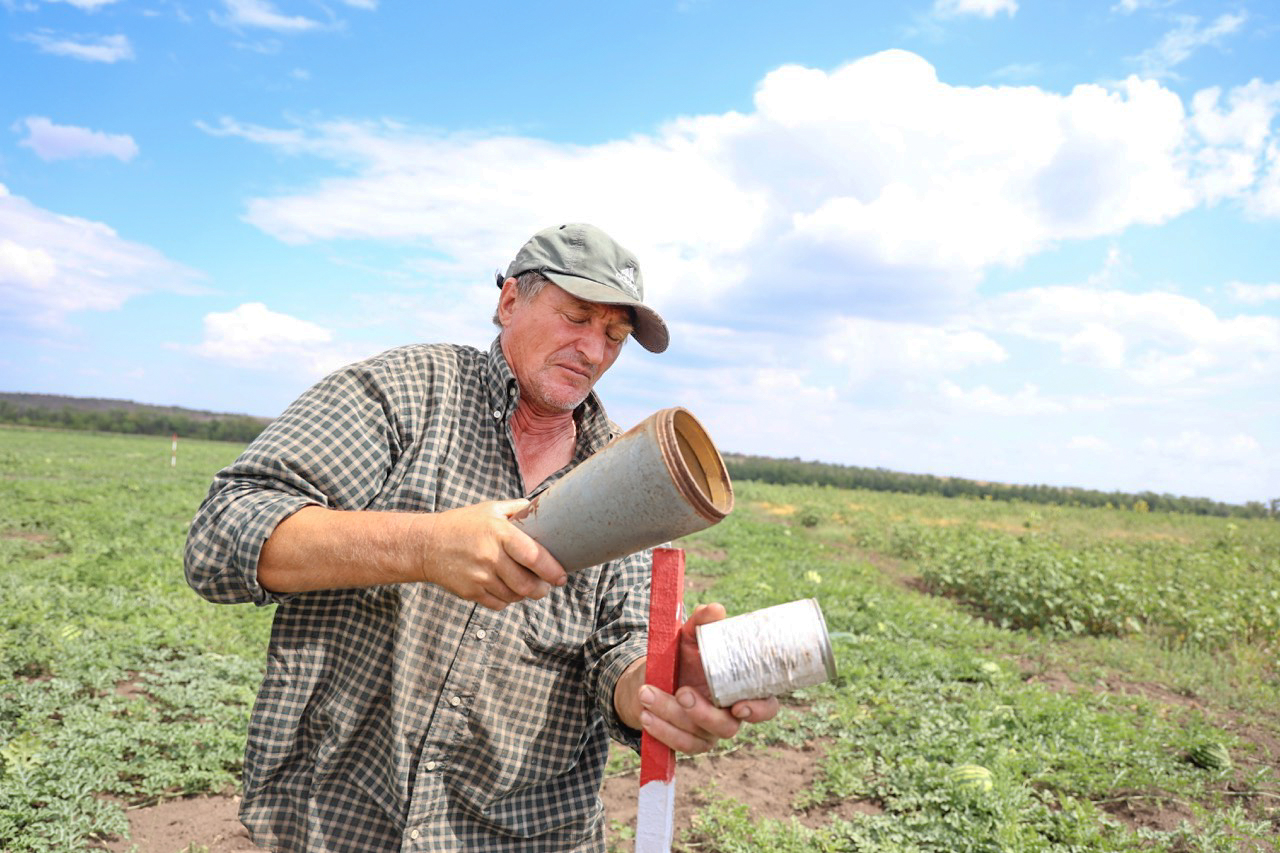
“This is the secret of my watermelons. Further away, where the black soil is, I sowed grain, and here I sow watermelons. And that’s why the watermelon is so, uh, tasty. I told you that Aunt Tanya and Uncle Serhiy have the best watermelons. You can see that my watermelons don’t bake, right? That’s because I sow them this way, and they love me. I don’t love them, they love me!” the farmer shares his secret.
Last year he planted watermelons closer to the house, and they were tasteless. Moreover, the melons were full of mines and shells. It was a miracle, he says, that no one got blown up.
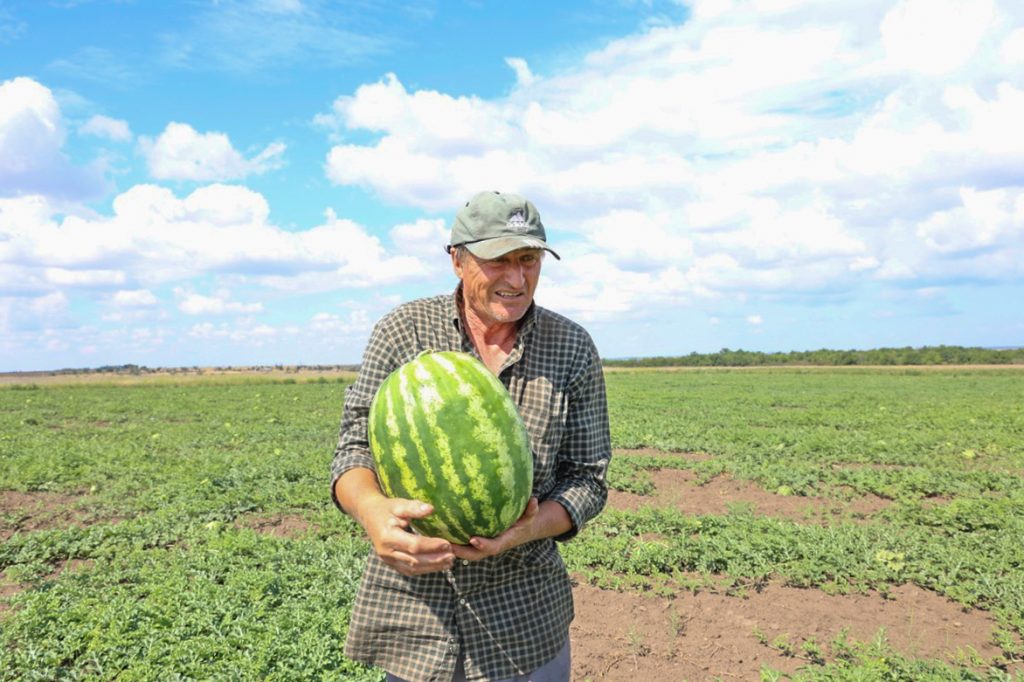
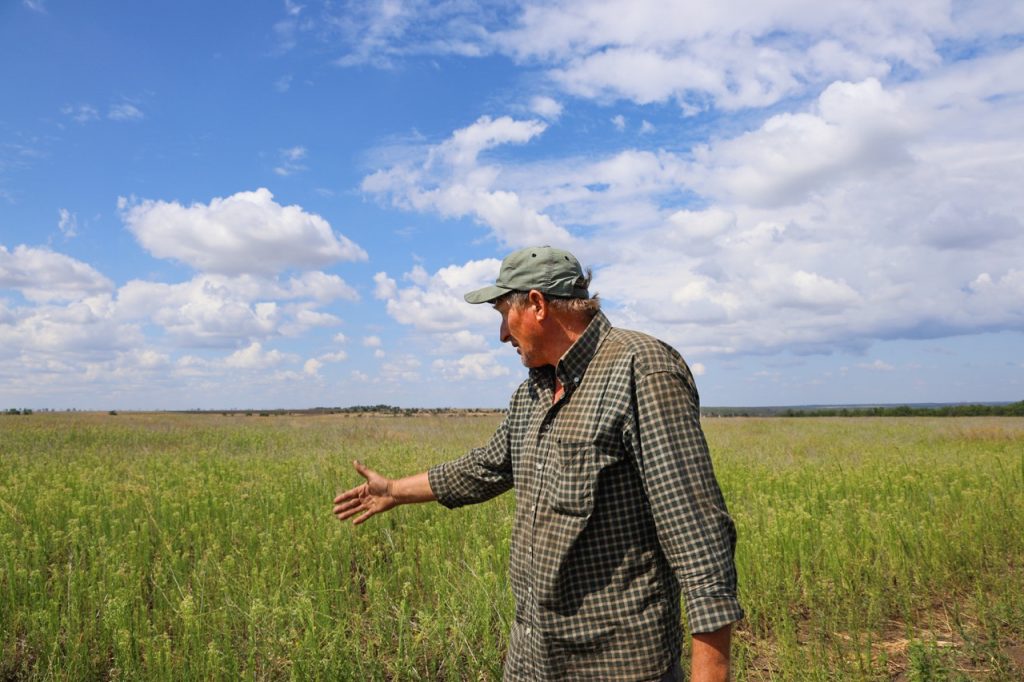
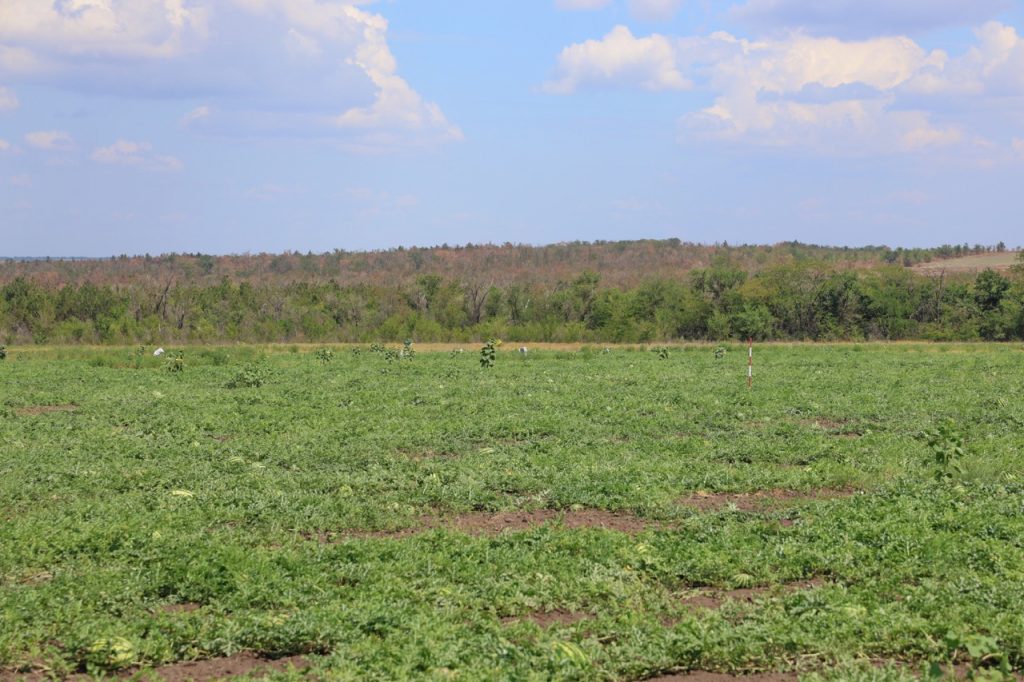
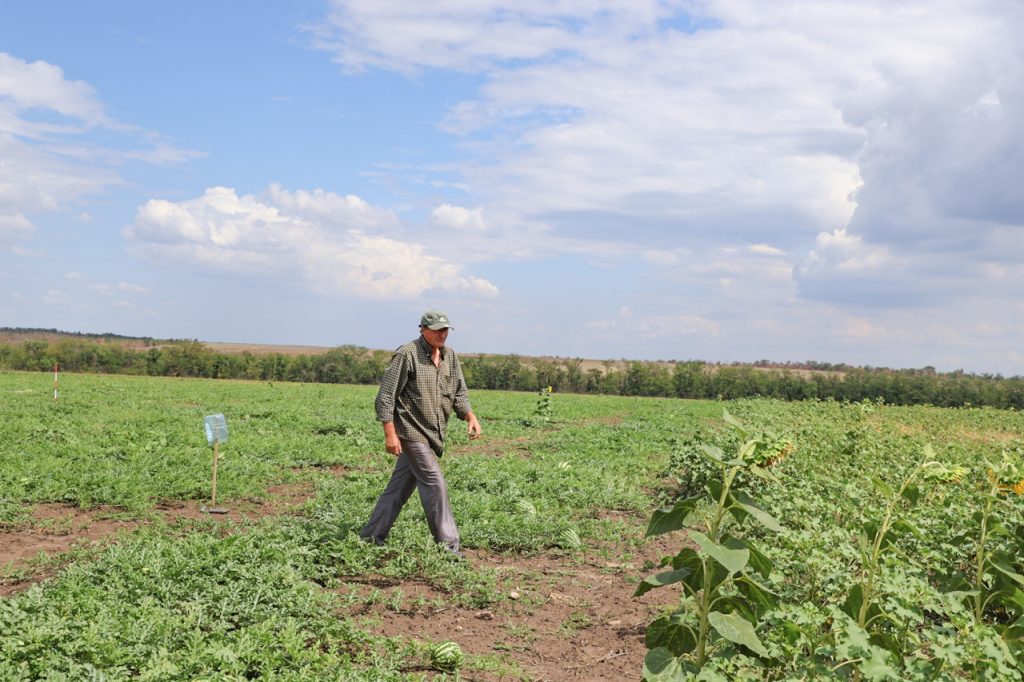
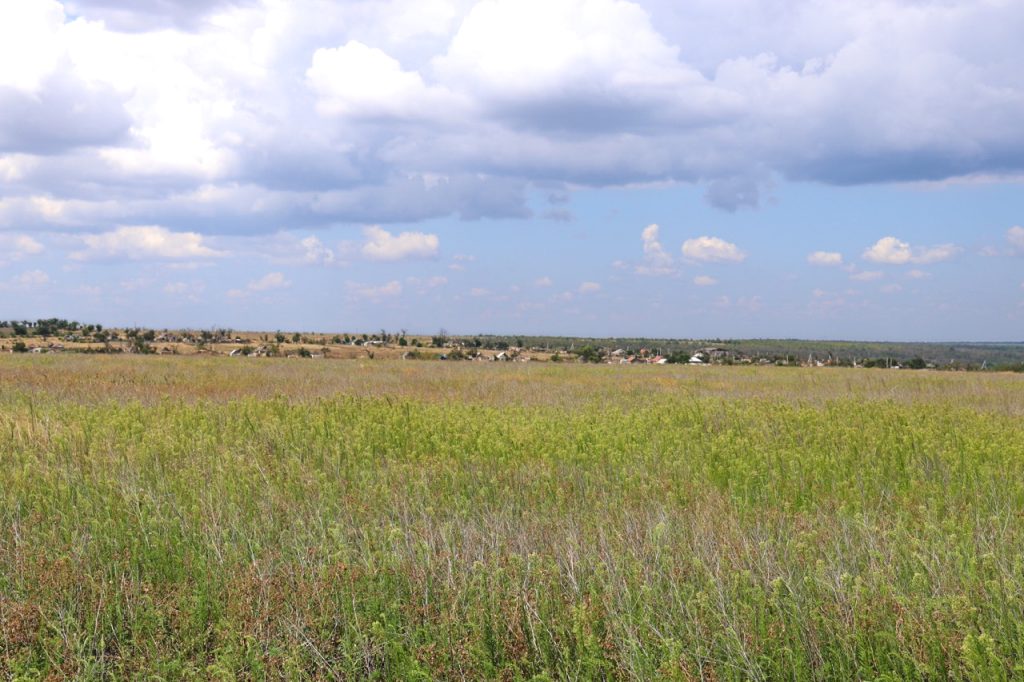
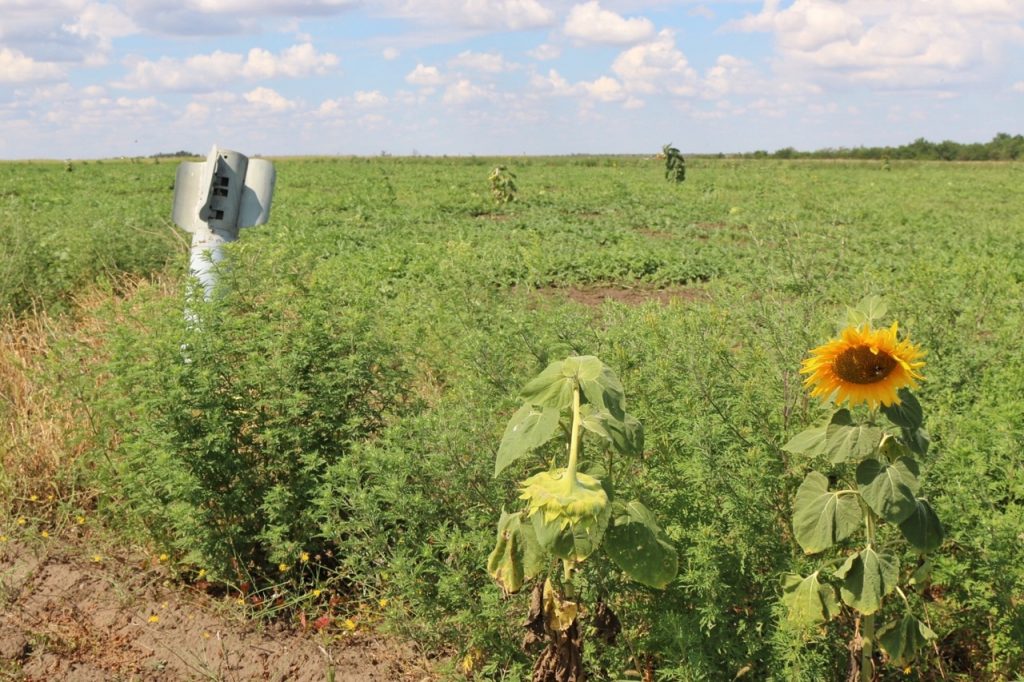

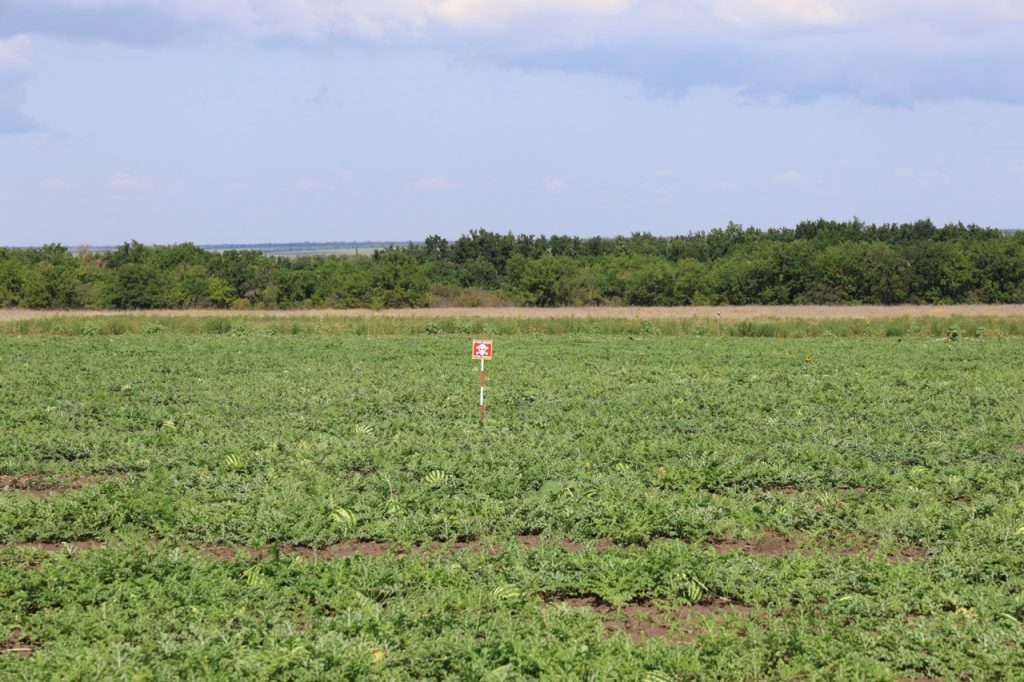
Upon returning to the village, we weigh the watermelons and fill the trunk with them. Serhiy passes one watermelon through us to the headman of Davydiv Brid, who also takes care of Bilohirka. We sit down on the path in the shade and continue our conversation.
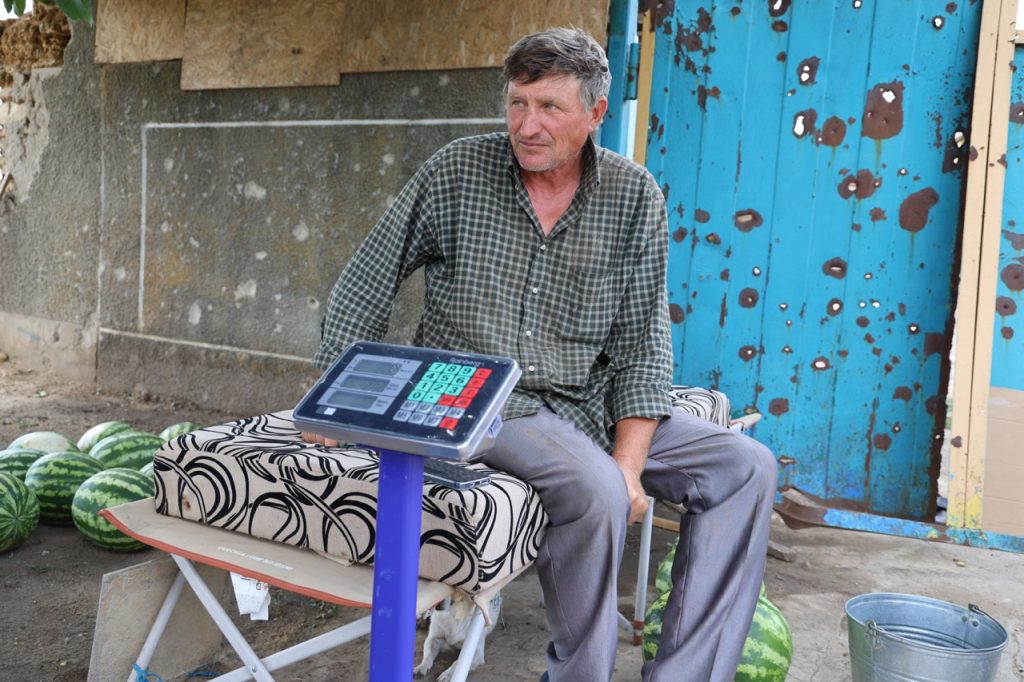
“The main thing is that the war ends, and then we will work and expand. If we make money, then we will repair the tractors, otherwise we are just crying. Everything will be fine, as long as the war is over,” Serhiy says.
His wife nods her head sadly and looks at the broken and mangled tractor.
This text is a translation of our report, which can be viewed at the link
How Novovorontsovka returns to a peaceful life
The former district center, and now the center of the community, the village of Novovorontsovka is the only administrative center of the region that was not occupied by the Russians in the spring-summer of 2022. Some of the community’s settlements were either under occupation or on the firing line, and the village itself was a “grey zone” with daily cross-fire and virtually a complete blockade of food and medicine supplies.
The community, located on the very border with Dnipropetrovsk region, took the brunt of it and is now slowly recovering from the damage made.
From an activist to the head of the military administration
“Some of the authorities withdrawn themselves, someone left, someone got quiet, law enforcement agencies were almost all liquidated – there was a complete misunderstanding of the situation,” says Andriy Seletskyi, head of the Novovorontsovka settlement military administration.
Before the full-scale invasion, historian and regional specialist Andriy tried to make residents and guests of a remote community fall in love with his region, led excursions, dived into the Kakhov reservoir in search of flooded settlements and dreamed of developing his native community.
After the invasion, he became a volunteer, delivering food and medicine to the residents of the surrounding villages under fire.
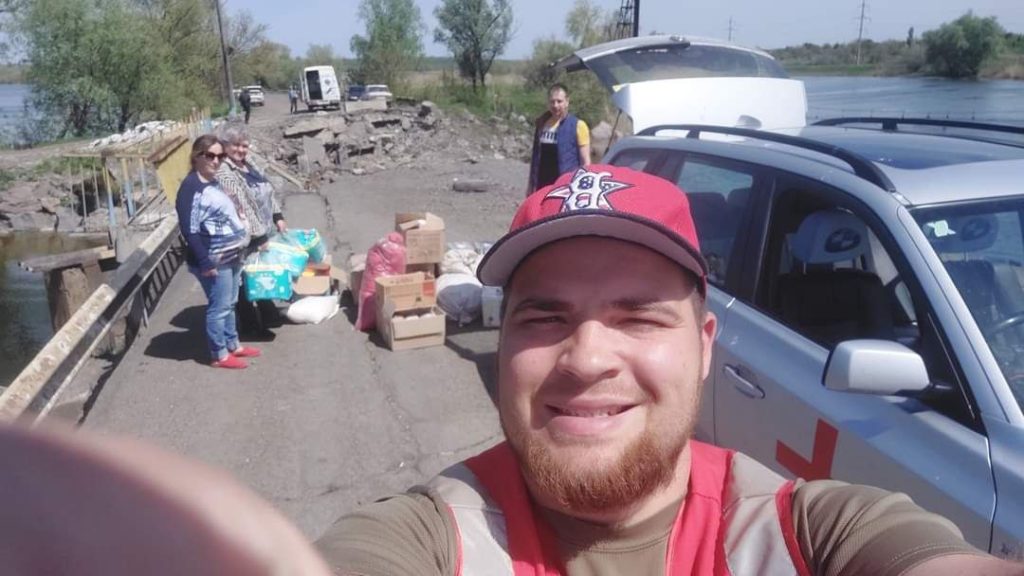
When in the summer of 2022 the question arose about the creation of military administrations, Dmytro Butriy, the deputy head of the Regional Military Administration (RMA) at the time, proposed the candidacy of Andriy for Novovorontsovka. He does not conceal this fact and says that he actively cooperated with Butriy, who helped with food, medicine and hygiene products. Seletskyi, as a volunteer of the Red Cross, delivered everything around the community.
“I conducted an interview with him, listened to his plans and strategy and took the risk of submitting his candidacy to the Office of the President,” recalls Yaroslav Yanushevich, former head of the RMA.
Many in RMA then said that the young idealist would be a problematic leader, but the then governor had no choice. The former head of the community either disappeared, or the residents themselves kicked him out.
“In mid-March, the Russians occupied Osokorivka and once drove an armored personnel carrier into Novovorontsovka. They drove very quickly to the Dnipropetrovsk region and then drove off rapidly. The front line passed through our community. Vysokopilya was already occupied. Our troops stood higher, and the orcs ones were lower,” Andriy recalls.
According to him, up to 1,000 attacks of all types of weapons were conducted in the village and other settlements of the community per day. Traces of battles are still visible. In the center of the village we see shallow craters from “Grad” attacks, trees cut by fragments from mines and shells.
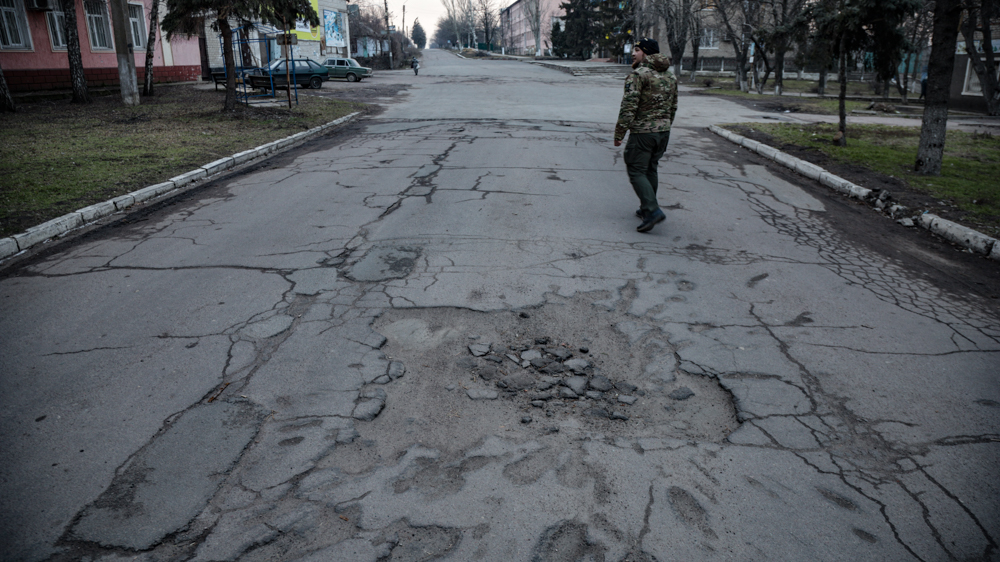
In the first days of October, the liberation of Novovorontsovka region began (neighboring Visokopilya region was liberated on September 4), and the community was finally liberated on October 25.
In fact, Andriy was the only more or less legitimate representative of the government, because he was a deputy of the district council from the party “Servant of the People”.
The process of anarchy lasted until October 28.
“When I was appointed, we immediately started forming a team. I gathered everyone who was there and made them work. As for the shelling, they ended on September 23 – before the liberation. Shellings were still being conducted in the surrounding areas, but not in Vorontsovka itself,” Andriy recalls.
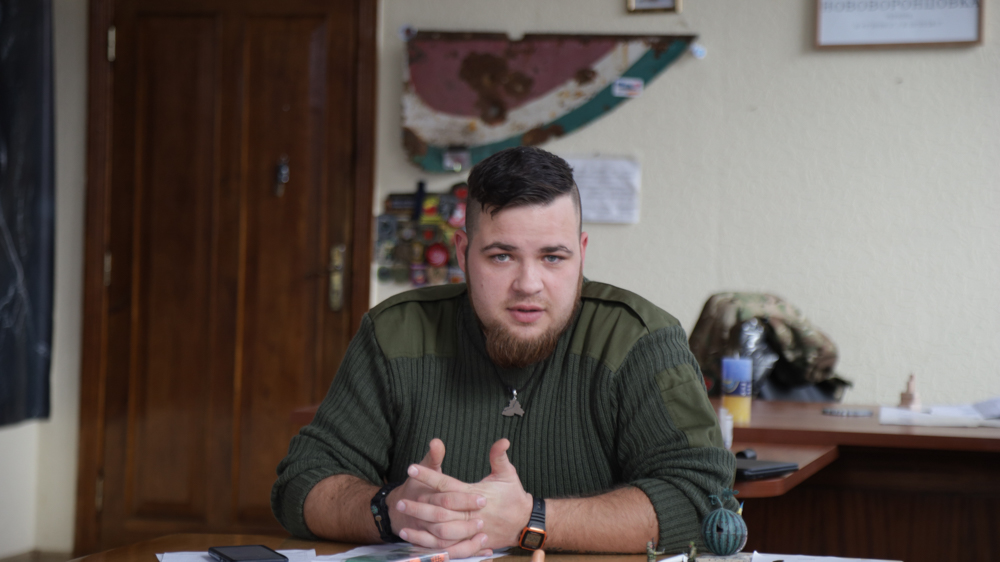
As it turned out later, the issue of personnel turned out to be the most complicated- all those who had previously worked in the government or communal economy left and were in no hurry to return.
Farmers and businessmen, with whom it was possible to establish cooperation, left.
The backbone of the new government consisted of non-local people. Victoria Berezko was the only resident of Novovorontsovka who returned and started working.
Alla Torchanska, who before the invasion was the head of Dudchan village in the neighboring Myliv community, returned from Poland, Serhiy Pilypenko, a former resident of Rogachik, and other people from Seletskyi’s team returned from Kyiv.
Many refused. You can fully understand these people, especially when you stand on the bank of the reservoir and see the opposite bank, from where the Russians can attack from “Grad” or even mortars at any moment.
The first steps of the new government
The new government of the community started with the main directions – humanitarian aid, demining, security, shelter, law enforcement activities.
Andriy honestly says that he has never been an official and has never been oriented in budget issues and narrow topics of local self-government and civil service. By the end of the year, the community did not live within the means of the budget, which was only being discussed.
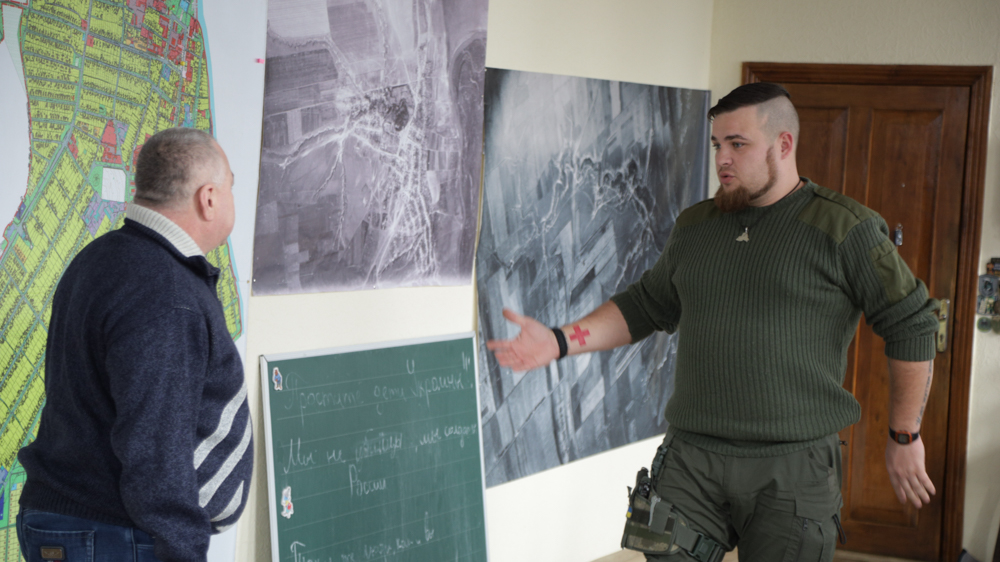
“Until the end of December, we did not take a penny from the budget. It was empty, so I tried to quickly do everything myself to get things working. Everything was done with the funds of donors or in debt, such as, for example, the windows in the building of the village council,” he says.
The main help came from donors and charitable foundations, which still willingly cooperate with Andriy and his community.
The windows in the administration building were put in debt by Andriy’s friends from Kryvyi Rih. At the same time, they began to restore the work of the Ministry of Internal Affairs, the Registry Office, and the Central National Police Service, because people had a great need for this. For more than 7 months, registration procedures for births, deaths, etc. have not been carried out.
However, the lack of firewood became the main problem for Novovorontsovka region with the onset of winter. There was simply nowhere to take them in the steppe community. People in the villages are used to buying firewood for the whole winter with the money earned in the summer, and those who worked better than others could even buy coal. In 2022, for obvious reasons, people did not earn anything, so they had every chance not to survive the cold steppe winter.
Volunteers and partners from other regions began to bring a certain amount of firewood and purchase it through the regional authorities, but it was not enough.
At that time, Andriy walked around the village and other settlements of the community and was concerned about the lack of amenities. They tried to clean, trim trees and bushes with their own strength.
“Visually there was a look of neglect and abandonment. And this amazed me, because no matter how much humanitarian aid you bring, you feel that nobody needs anything here. Even before the war, I had an idea – we need more woodshredders that will cut off the branches. In this way, we eliminate dry branches and bushes and solve the issue of heating. Kryvyi Rih friends helped us attract American investors, and it was a solid start for our Military Administration. While everyone is just getting ready to work, we have already attracted $39,000 in investment into our community. They bought a tractor, a trailer, woodshredders and started working. It happened despite the fact that no one believed in us. People wondered – how is it? Have they already started to put things in order?”, he recalls.
During this interview we were walking along the main street – and indeed: the trees were all cut, and there was not a single branch nearby.
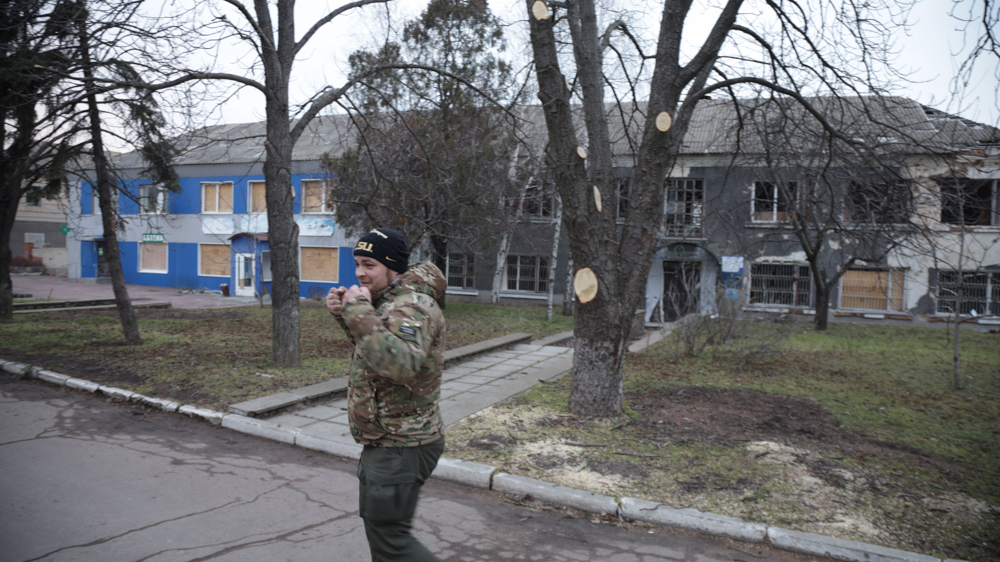
Andriy adds that at first people turned up their noses, saying why are you giving me some garbage instead of firewood? But now there is a queue for the splinter.
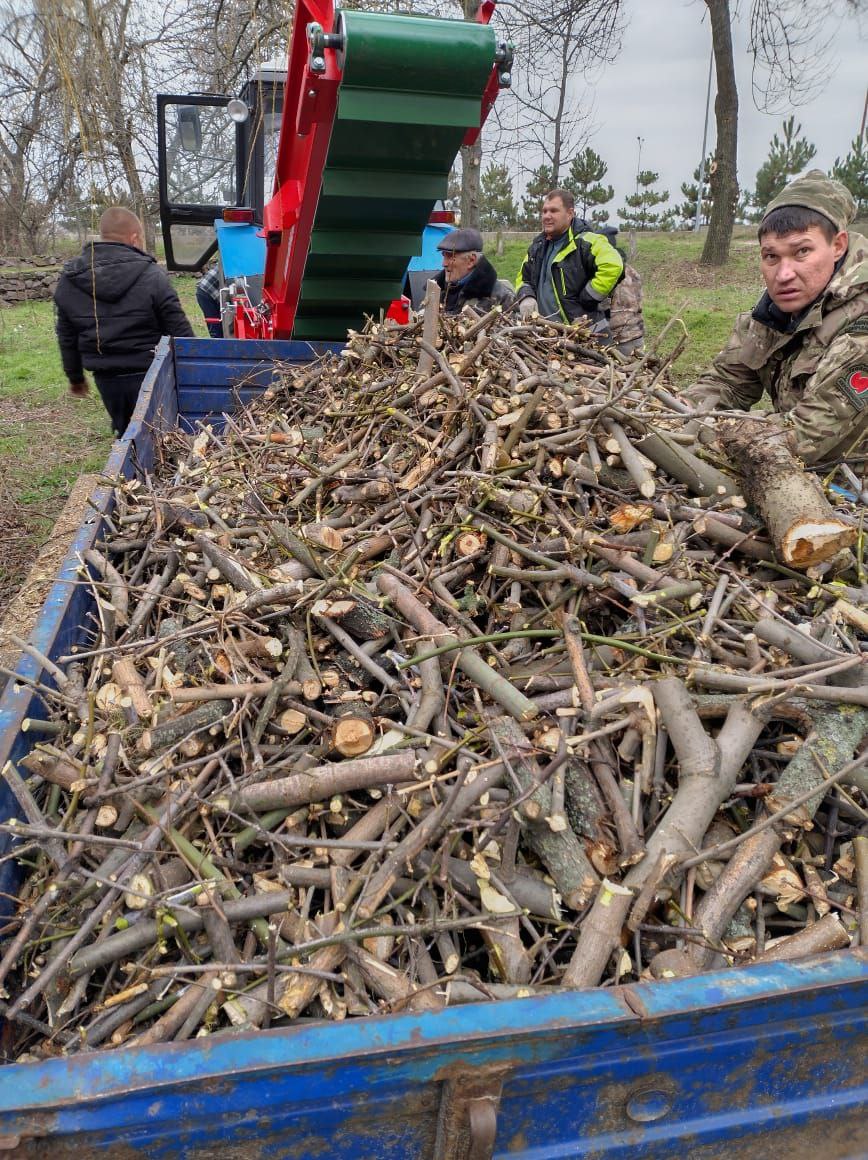
It enlivened people. They began to believe in the new government, so a decision was made to remove the workers of communal institutions from idleness. People did not work, receiving ⅔ of the salary, so they were given a condition – transfer to full-time work, and with those who are not in place, the employment contracts were suspended.
The budget officials agreed, and they formed a whole improvement division – 30 people. The teachers of the music school, the kindergarten, the Youth Sports School and others began to restore order in the community.
Also, the new government paid special attention to the villages of the community. Here it was decided to rely on village elders who knew everything and who were known there.
But things with reconstruction are going very slowly. According to Volodymyr Lytvynov, head of the Beryslav district military administration, there is still no compensation mechanism for damaged and destroyed housing.
How about rebuilding the community?
The same story is with social infrastructure objects. All the schools in the Novovorontsovka community were destroyed.
“We don’t even have an idea of how much it will cost to restore this school. We don’t even understand whether to rebuild it all, or whether to demolish this part,” says Seletskyi, standing next to the school destroyed by a Russian missile.
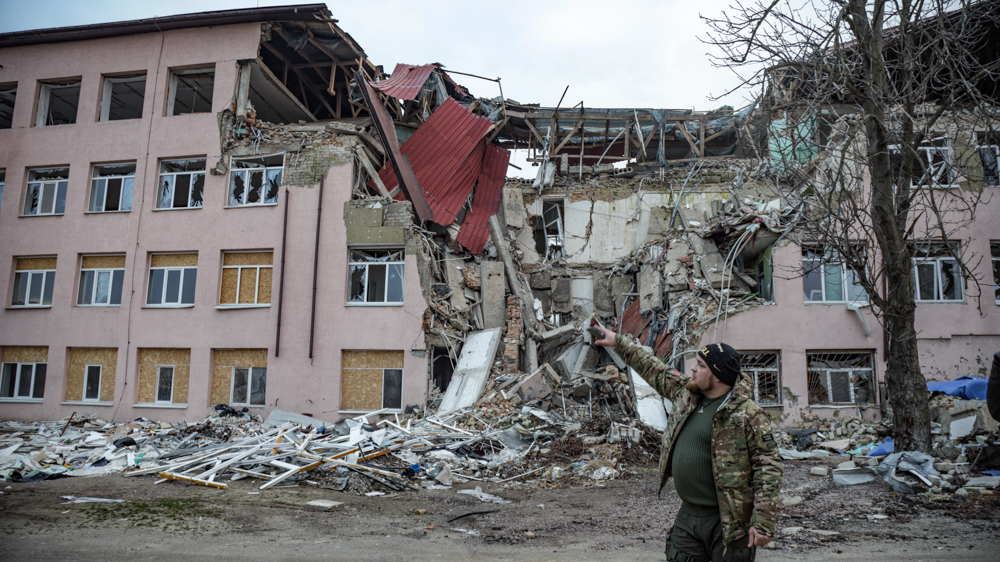
It was renovated relatively recently with the money of one of the candidates for People’s Deputies. It can be seen that the repairs were of high quality, but now everything is gradually falling apart, because the building was not even conserved – no one knows exactly how to do it and at what cost.
“So far, we don’t have a funding mechanism of this kind, so no one understands,” Litvinov comments and adds that currently no one will give money even for an assessment.
This school has already been shown to all donors and partners, but everyone says: we must wait for the end of the war. Plus, the community itself needs to understand whether all the schools will be needed after the war. After all, a huge number of people may not return, and keeping a large educational network will be a luxury for a poor community.
“There is a huge demand for educational services, a great desire of the teaching staff and ours that the first school should be left. We perfectly understand that the Myrolyubiv school is in a minus, because it is cold. There should be an elementary school in every district. The Novovoskresen school is in a minus, but the Lyubimov school is gasified, and one of the first to recruit children, there is a large state enterprise Pioner (8 thousand hectares of arable land, – MIST) and people and children will return there,” says the head of the community, inspecting the school he once graduated from and which, he said, his son would go to.

There were not many people on the streets of the village. We were walking along the local Beverly Hills – the street where the local elites live or lived before the invasion. The road here was full of potholes. Seletskyi complains that judges, prosecutors and other residents of the street could lay asphalt for themselves. Gradually, the conversation came to the issue of people’s dissatisfaction.
Dissatisfied, according to him, are everywhere. Regardless of how much firewood or food was brought to people by volunteers or international organizations.
The team and the head of the military administration perceive it clearly painfully. This is heard during the story about the remote village of Novovoskresenske.
“This is a deep rear, 40 kilometers from us. 600 people live there – this is the largest number in the villages. And they had the least damage – 10 houses were damaged, but the school was completely destroyed. And due to the fact that there are the most children there, we decided to send firewood there, which we received as a subvention from the state. And we drove all the trucks there. And the truck goes through all the villages, and everyone sees that the trucks with firewood go past them. And all residents are dissatisfied. We start to explain, but in vain. There is only one answer – we suffered more than them. We understand. People are very angry, and they want to compensate for their losses with something,” says Seletskyi.
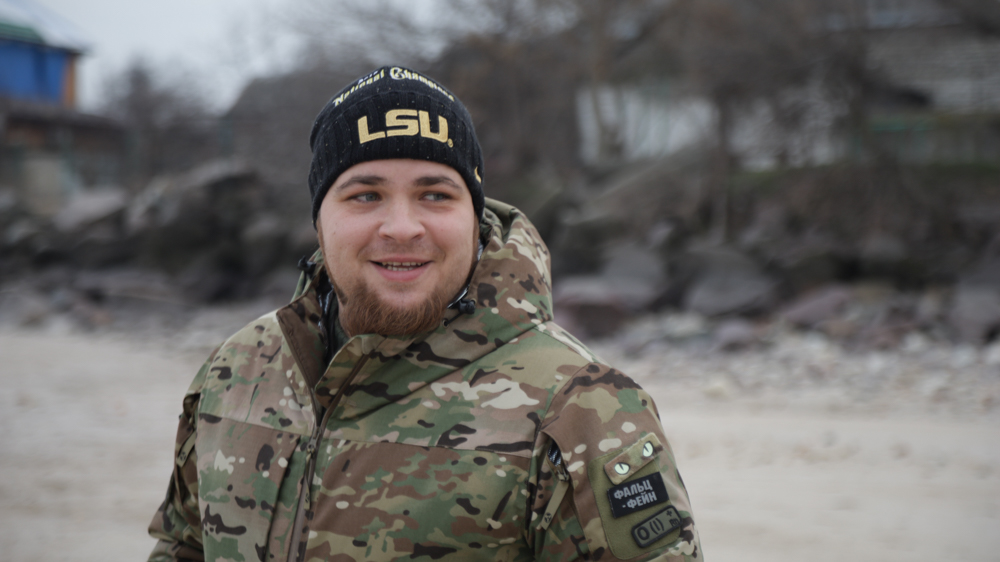
He also laments that people have found a working life hack to get what they want. You just have to complain directly to the governor, most often through Facebook or in messengers. He, in order to maintain his image, “descends” this complaint to the village military administration with a note “to be fulfilled” and here we are forced to fulfill it. And people have this algorithm – if they don’t get what they want to be done in the village, they complain to the governor and the governor fulfills his promises. Andriy attributes all this to human malice and greed and adds that, in his opinion, this is a big problem that should be solved with psychologists.
Reluctantly, but he also talks about the problem of “easy food”. The villages of the community are provided with everything. So much so that there is a danger that people will simply not want to work.
This is a big problem, because the young chairman’s team dreams of reviving production.
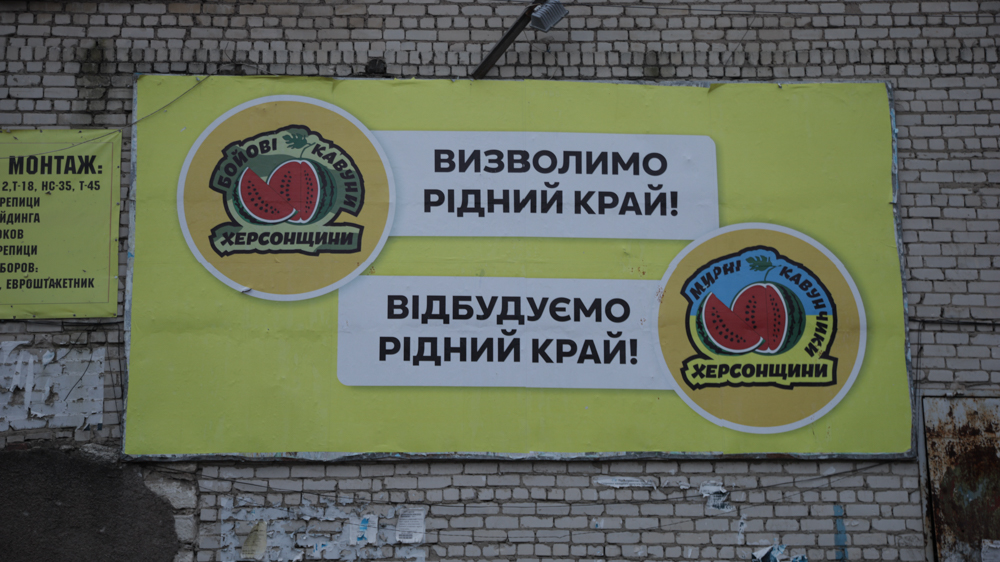
Here they believe that there are prospects for reviving the processing of milk and vegetables, as well as developing their communal greenhouse facility. It turns out that the community has its own agricultural land, which was previously leased to farmers.
“The Biletskyi brothers and I partnered with a French breeding company – they want to give us seeds for humans. And they have already sent melon and pumpkin seeds, and we asked people if you need seeds for sowing? After conducting this survey, we saw how lazy people are. Why? Because everything will be brought and everyone will be fed,” he shares.
But Andriy and his team do not give up and dream of a new Novovorontsovka, to which residents will want to return and tourists will come.
We end our walk through the village on the shore of the Kakhovsky Sea. Diver Seletsky shows us how deep this place was last summer.

When this material was already being prepared, it became clear that due to the shallowing of the Kahovsky Reservoir in Novovorontsovka, water had disappeared. It happened on February 22.
Already on February 24, the Water Mission organization delivered its filter station and began purifying water for the population.
Meanwhile, the military administration is looking for ways to solve another problem. Not the last one for the community.
Serhii Nikitenko


